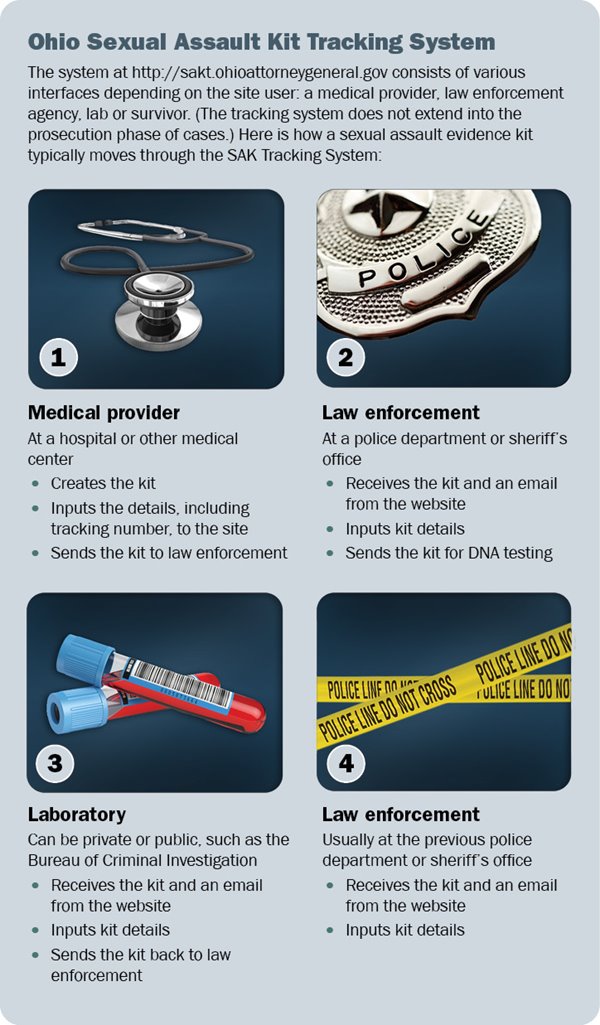By this time next year, victims of sexual assault across Ohio should be able to anonymously check whether their examination kit evidence has been sent to a law enforcement agency or to a crime lab for testing.
To make that work, agencies that have chain-of-custody responsibilities for sexual assault evidence kits will be using a new online log, called the Ohio Sexual Assault Kit Tracking System.
“Nurses, police, lab workers and my office — we all have a duty to make sure we’re not compounding victims’ pain by leaving them in the dark,” Attorney General Dave Yost said.
An Ohio law passed in 2014 requires that all sexual assault evidence kits be tested for DNA within 30 days of law enforcement determining that a crime occurred, and a state law passed last year established the authority for the Attorney General’s Office to run online tracking of that process.
“We chose this system because it works well in other states, particularly Idaho, which developed it,” Yost said. “The online portal is easy for officers, nurses and lab workers to add kit details to, and the ease with which survivors can access those details means less phone tag for everyone involved.”
Basically, each time a hospital, laboratory, or police department or sheriff ’s office sends a sexual assault evidence kit to another agency or receives one, a worker enters or scans the kit barcode into the website. Victims can use that code, given to them at the completion of their post-assault exam, to check the location of their evidence kit.

Victims will never need to enter personal information into the website, only the kit code, and the website log will not include victims’ names or other identifying details.
Law enforcement agencies can use the system to track how long kits have been in their custody and whether any are overdue for action.
“With a little extra work on our end, we can offer victims peace of mind that action is being taken in their cases,” Yost said. “And, for law enforcement, we can make sure that no DNA profile mistakenly goes uncollected, which is crucial — as we’ve seen DNA evidence solve many investigations and cold cases.”
As part of a pilot program, trainers from the Attorney General’s Office in February showed agencies and victim advocates in Akron, Delaware and Clark County how to use the system, which is scheduled to come online next month for the initial rollout group.
Further training, set to take place in stages across the state, has been delayed by the COVID-19 pandemic, but the hope is to complete statewide accessibility by March 31.
For more information, contact Eric Johnson at 614-995-4231 or Eric.Johnson@ohioattorneygeneral.gov.